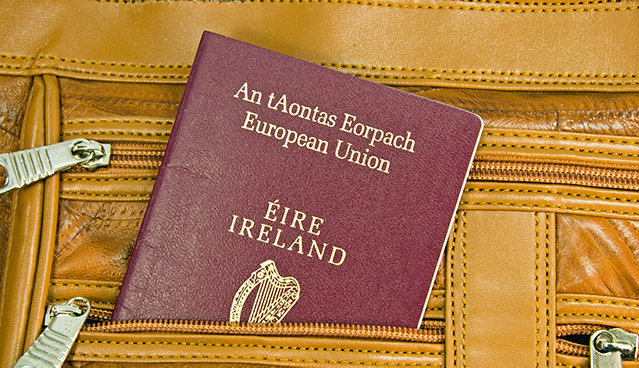Referendum on voting rights to be held in October

A referendum on the voting rights of Irish citizens living outside of the Republic of Ireland, originally scheduled for 24 May of this year, has now been postponed until October. The referendum could now be held on the same day as other referenda on various issues.
Announcing the decision to delay the referendum to the Dáil, Taoiseach Leo Varadkar said that the decision had been taken in the interest of maximising the vote’s chances of passing, bearing in mind the packed voting schedule already on 24 May, with European Parliament and local council elections scheduled along with a referendum on lessening the length of time that a couple must be separated before obtaining a divorce.
Should the referendum pass, it would grant voting rights in the presidential election to all Irish citizens, not just those living in the Republic of Ireland. This would address a curiosity in the 2011 presidential election, where Martin McGuinness, a resident of Derry, was able to run for president, but unable to vote. Irish voter registration is currently done by residential address, but there is no such requirement for those running for office, as seen in the cases of McGuinness and Billy Lawless, who was appointed to the 25th Seanad by Taoiseach Enda Kenny while living in Chicago.
As a country with a tradition of heavy emigration and with 20.8 per cent of Northern Ireland’s residents holding an Irish passport, as per the 2011 census, it is estimated that there are 3.5 million Irish citizens worldwide outside of the Republic’s jurisdiction.
Speaking to the Irish Times before the postponement of the referendum, Taoiseach Varadkar discussed having “a second set of referendums later in the year”, which would likely include one to remove article 41.2, known as the clause that implies that a woman’s place is in her home.
Ireland has in the past been criticised by both the EU and the UN for the restriction of its emigrants’ voting rights. Sinn Féin’s Liadh Ní Riada was the only candidate in 2018’s presidential election to give the issue prominence in their campaign, although President Michael D Higgins is known to be supportive, having confirmed as such in a public meeting held in London prior to the 2011 election.
Ireland is currently one of the last EU countries that doesn’t allow its emigrants to vote in its parliamentary elections. The only expatriates currently permitted to vote in Ireland are those who plan to return within 18 months and are thus allowed to retain their residential address, although they must vote in person, as seen in the #HometoVote social media trend during last year’s referendum that resulted in the repeal of the constitution’s eighth amendment. While most EU countries also allow emigrants to vote in parliamentary elections, no such plans for Irish emigrants to vote in Dáil elections have been detailed.





